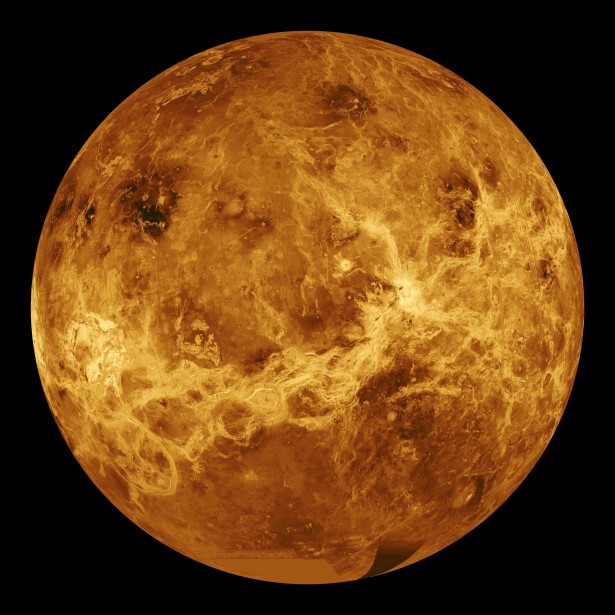
New research released by Universities Space Research Association (USRA) suggests that Venus could be volcanically active today. The finding would mark the first time humans observed an active volcano on another planet. The research has been published online in the journal Science Advances by study lead author Justin Filiberto, a planetary scientist at the Universities Space Research Association’s Lunar and Planetary Institute in Houston.
About a decade ago, scientists analyzing data from the European Space Agency’s Venus Express probe suggested that some of the lava flows on Venus are possibly less than 250,000 years old. Unusually high emissions of visible to near-infrared light were found at a number of sites on Venus, hinting at recent lava flows. At the time, scientists were unable to determine the exact ages of the lava flows because of the unknowns about how volcanic rocks change in response to Venus’ atmosphere, which is high in carbon dioxide and sulfur.
For their experiments, the researchers focused on crystals of olivine, a green mineral commonly found in volcanic rock. They heated the olivine in regular Earth air in a furnace up to 1,650 degrees Fahrenheit (900 degrees Celsius) for up to a month to mimic the heat of Venus. Within days, the olivine became coated with the reddish-black mineral hematite. When compared to the Venus Express observations of this change in minerology, they surmised that the level of degradation would only take a few years to occur.
If these lava flows on Venus are very young, it would be the only other celestial body in our solar system known to have active volcanoes other than Earth and Jupiter’s moon Io. Mars and Earth’s moon once had active volcanoes, but they have long been dormant on both worlds.
